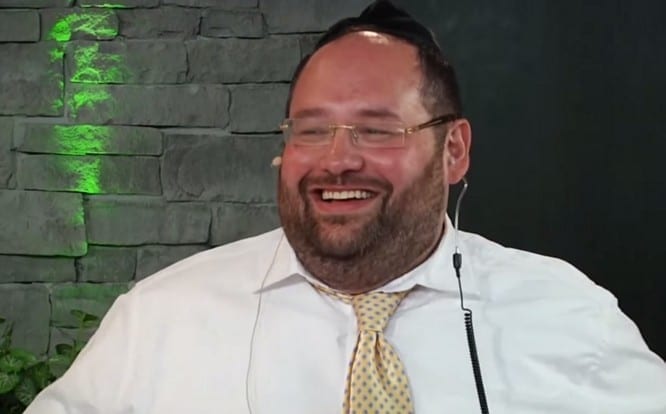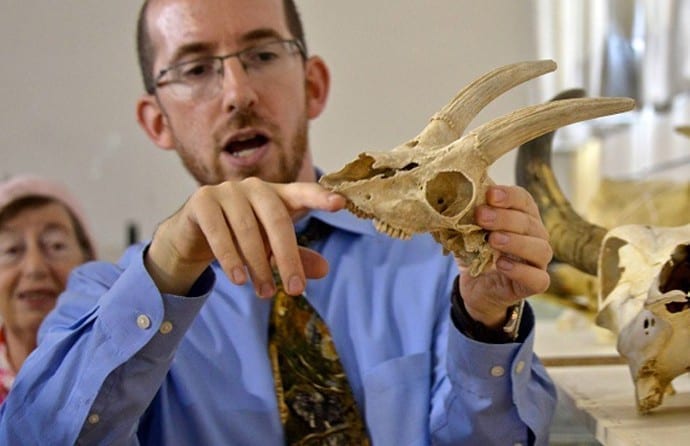Back in the early 1970s, there was no such thing as a school for newly religious Jewish girls, at least not that I was aware of. So I was making my way through a book I’d found—a big old black volume on sale in a West Side bookstore—with the word “JUDAISM” on the spine in dull gold letters, by someone named Meir Meiseles.
Sitting at my desk with my OU yogurt and Star-Kist tuna during the daily lunch-hour exodus, alone in the emptied-out Classifieds Ads Department of my father’s magazine office on 53rd Street after the other employees had gone off in merry camaraderie to the nearby non-kosher steakhouse, I used to prop up that big black book against the Selectric typewriter. And I’d read:
Honor your father and mother, that your days may be prolonged upon the land which the Lord thy God giveth thee. —Exodus, 20:12
You shall fear, every man, his mother and his father, and my Sabbaths you shall keep; I am the Lord thy God.—Leviticus, 19:3
Now, in those days, making your parents happy wasn’t on anyone’s Age of Aquarius agenda. To be a self-respecting adult meant becoming your own man…I mean, woman. You had to be proud to be a woman, and not act subservient. Women didn’t want to be men, exactly, just get the same pay as men, and be respected like men. And of course not be in charge anymore of things such as washing dishes, or children, or cleaning up after dinner.
I’d recently given away my brand new black velvet pantsuit from Lord&Taylor, after wearing it only twice. It was my very first act of mesiras nefesh. Yet although I’d taken on the mitzvah of honoring my mother and father as part and parcel—or to be more exact, as the central pillar—of my Torah observance, almost everything I did religiously seemed perfectly calibrated to worry them and give them pain. How could it be? My heart’s desire, above all, was to do two things G-d wanted: to honor my parents and to honor Him. But the two commandments often seemed mutually exclusive.
First of all, the silverware. I recall standing in front of the stove in my parents’ Manhattan rental apartment, waiting for some of my mother’s knives, spoons and forks to come to a boil in her stainless steel frying pan. I’d waited for an afternoon that neither of them was expected home, but I suddenly became aware of someone’s presence behind me and spun around.
“Oh!” I exclaimed cheerily. “I didn’t know you were here!”
My mother was looking at me with searching, narrowed eyes; lips parted as if to speak, but no sound came out.
A couple moments passed.
“Sarah…” she said quietly. “What are you doing?”
“Oh! I’m just koshering some silverware! You have to boil it!”
“I see.” She was still looking into my eyes. More silence, longer this time. Then: “Do you really think God cares?”
The question pierced me.
My mother’s opinion seemed obvious — she whose opinions and tastes and beliefs had always laid the foundation for my own. But all I knew at that point was that I cared, for reasons I couldn’t yet articulate. But did G-d care? Really?
So what was the answer? I wanted truth, the whole truth, and nothing but the truth. Five years later, I would have explained that separating milk and meat is the Torah’s way of encouraging ethics and compassion in human beings, based on the prohibition against cooking a kid in its mother’s milk. Ten years, and I would have said, “This is how a human being can connect to that which is eternal and infinite, precisely because it’s beyond rational explanation.” Twenty years, and it would be: “G-d gives us physical mitzvos as a way of making His Presence a reality in our lives.”
Thirty years, and it would be: “Yes, Mommy, G-d cares.”
But by then, she was no longer around.
Then there was her cooking. It’s only now, as a mother of adult children, that I can imagine how disheartening, how aggravating, how hurtful it must have been for her each time I politely declined to partake of something she’d made. “No, thank you,” to her vegetable chicken soup, and to her homemade herb bread that I’d always loved, and her cabbage salad, from the organic garden that she had always worked so hard to maintain, all by herself, starting decades before “organic” was in style.
“Would you like some of these string beans? I didn’t put anything in them, just a little butter.”
“I’m so sorry, Mommy…I…”
Above all…Shabbat.
Whenever Friday afternoon rolled around and the three of us would pile into the car for the drive home to Connecticut, they in the front seat and I in the back, talking and talking, singing our old family favorites all the way to New Canaan…it was a joy, it was wonderful.
But my two little fake-silver candlesticks that I’d bought from a kiosk on 72nd—where could I light them to ensure that they wouldn’t get blown out or inadvertently moved? And why did I have to make such a big deal about lighting exactly on time? I imagined they were thinking, You really think G-d cares? And unscrewing the light bulb in the refrigerator, how could I do that without inconveniencing her? And the lights I’d leave on in the kitchen and living room, which someone inevitably would switch off without thinking. The chicken giblets I’d bought from Meal Mart on 72nd, and the yummy chopped liver, and the broccoli quiche…I wanted to share it all, of course! Nothing would have made me prouder! But nine times out of ten, someone would end up using a treif knife or fork, and I wouldn’t be able to eat it, and they would be distressed.
The trouble increased as winter came on. When Fridays grew short and they’d set out for Connecticut too close to sundown, I’d stand at the door and we’d bid each other our sad farewells. “But Sarah, you’ll be all alone!” I remember my father’s worried eyes. “Can’t you come? You’re not doing the driving!”
So sorry, Daddy. So sorry, Mommy.
I felt like a wandering Jew, a wondering Jew, a Jew in my own personal desert—those silent Shabbats all by myself, staying behind in their rented apartment in New York City. Friday night and all day Saturday, with a container of cole slaw and cold Meal Mart chicken to keep me company, along with The New York Times…unable to take the elevator up or down nine floors… Regarded as a weirdo by the hotel employees as I’d get trapped yet again behind a locked security door…
Take the key with you, miss, the clerk would advise.
But you see, I can’t carry it outside…
Oh, all the strange looks, and lonely times!
But one cold and rainy Friday afternoon, as my two little candles already flickered on the window sill and my parents in their overcoats were taking their leave, my father suddenly stopped at the door. “Ellen, I almost forgot! Where’s the neckla—? “
“Oh! Right here!” She reached into her purse.
It was from a jewelry store.
And when I took off the lid of the tiny box, and lifted the soft little white square of cotton…there looking up at me was…a Jewish star.
The years went by. My parents got older. And so, of course, did I.
I moved to Israel, got married, had children, and the conversation with my parents about Judaism went on and on. We had tense arguments about evolution, and the Chosen People; disagreements over the roots of anti-Semitism, clashes on the subject of ritual and superstition. But our dialogue continued, our love grew, and our mutual respect deepened.
In late August of 1990, three months before my father’s completely unanticipated death from a heart attack, my parents and I were searching one Saturday night in Jerusalem for a nice place to eat out. But Shabbat ends late in the summertime, and all the kosher establishments were still closed. In the company of several tired, cranky little grandchildren, we were driving from one place to another, my mother and father getting visibly weary from these nocturnal wanderings around the Holy City, when at last, from the back seat window of their rented car, I spotted what looked like a kosher bagel spot. All of us brightened up, my father found a parking place, and off we set, the children skipping happily along before us.
Upon reaching the restaurant, however, a closer inspection indicated that it wasn’t what we were looking for.
“But, Sarah,” my father implored, baffled. “It says kosher.”
“I’m so sorry, Daddy. It’s not kosher. It’s kosher-style.” Back we all piled into the car.
Setting off again, it suddenly dawned on me that the Hilton Hotel had a dairy restaurant, one floor under its lobby, which would certainly be open by now.
A half-hour later in the hotel elevator, having knocked in vain on the closed doors of the darkened Kumsit Coffee Shop, we were rising up through the bowels of the Hilton when I noticed my father’s ashen face and felt terrible. His eyes met mine.
“I’m glad you’re leading a religious life,” he said.
I felt my mouth fall open. “You are?”
“Yes,” he said with that small nod of his, of certainty. “It’s consistent with my values.”
My mother looked over at him, then at me, pensively. “Yes,” she said, “That’s true.”
That was the end of that, and since this was the last time I saw him, there was no opportunity to discuss the matter again. But years later when my mother and I talked about it, we both thought that not unlike what he himself tried to do in life, Daddy had seen how even his little grandchildren were willing to go through physical and emotional discomfort for the sake of an ideal.
0 25 7 minutes read




